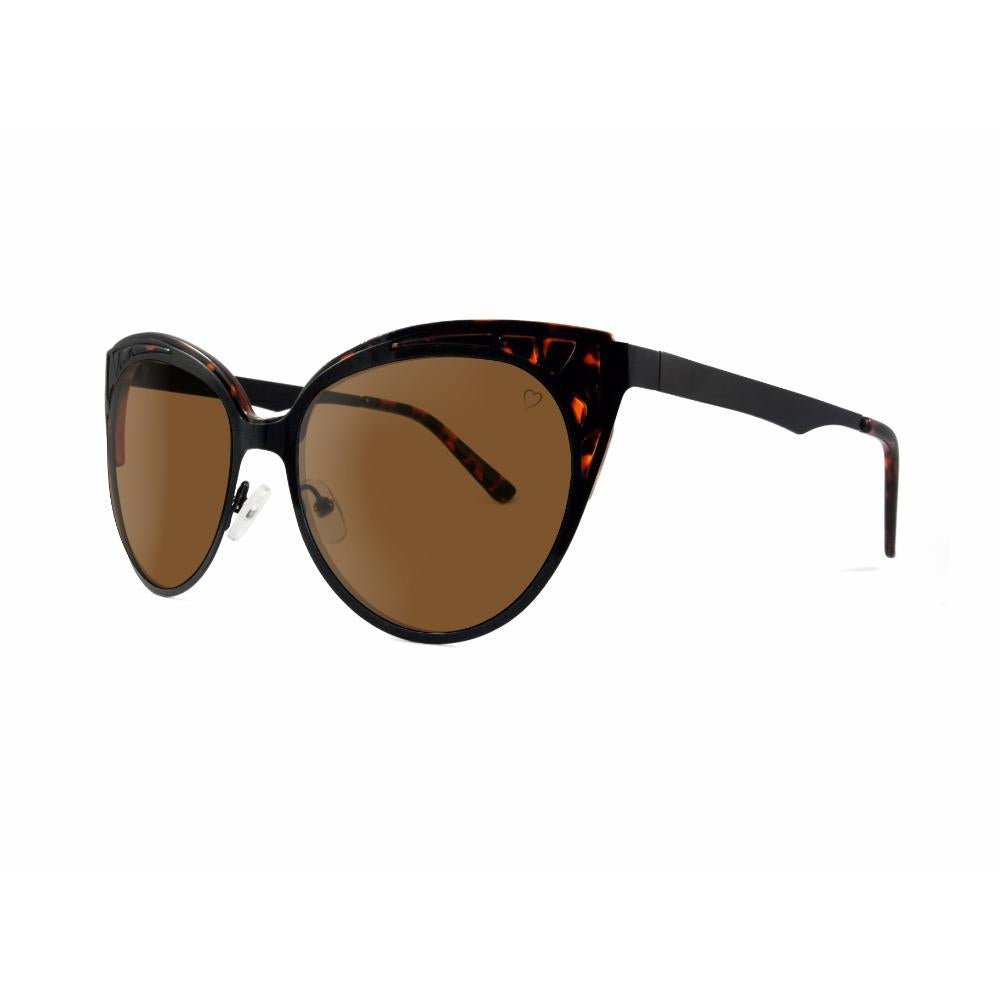Types of Perfume: A Guide to Fragrance Concentrations
Discovering your favorite scent starts with learning the different types of perfume available. The classification of perfume, based on the fragrance concentration, indicates the strength and longevity of the fragrance on your skin.
The fragrance concentration that you choose can affect how long you can smell the perfume, as well as the strength of the smell. More concentrated versions have more fragrance oils and less alcohol, meaning they are stronger and last longer. Knowing these differences is crucial to help you make smarter decisions on your fragrance investments.
Key Takeaways
-
Perfumes are categorised based on their fragrance concentration.
-
The concentration of fragrance oils impacts the longevity and intensity of the scent.
-
Higher concentrations are more intense and longer-lasting.
-
Understanding fragrance concentrations helps in choosing the right perfume for different occasions.
-
Fragrance concentration is a key factor in determining the price of a perfume.
Understanding Perfume Concentrations
The higher the concentration of oils a perfume contains, the stronger and longer-lasting the sillage (scent throw) will be. In general, the less oil there is in the perfume, the fast that the scent will dry on your skin.
The difference among perfumes depends not on the kind of fragrance but in how many parts per million of essential oils are used in the fragrance base, which can also be water, alcohol, or an oil. That variation can alter the way the scent develops and smells throughout the day.
What Determines Perfume Strength
Perfume strength is primarily determined by the ratio of fragrance oils to alcohol or water in the formulation. There are some major factors that influence the overall strength and character of a perfume:
-
The ratio you choose between fragrance oils and alcohol (or water) establishes the strength and projection of your perfume.
-
Higher concentrations of fragrance oils result in stronger, more intense scents.
-
The base of a perfume, whether alcohol, water, or oil, impacts its performance.
Knowing these factors helps you select the appropriate type of perfume for your taste, whether you’re a fan of a simpler-day time scent or a more daring night-time fragrance.
Parfum: The Most Concentrated Fragrance
If you're in search of the ultimate fragrance experience, look no further than parfum, which is the most potent, or strongest, type of perfume. Parfum, known as pure perfume, boasts a higher concentration of fragrant oils and is the most intense and long-lasting option.
Concentration Levels: 20-30%
Fragrance concentration is the strongest in parfum, with 20-30% being the usual percentage. This means that parfum contains a high proportion of fragrance oils, which is why it is so strong!
Longevity: 12+ Hours
Parfum is incredibly long-lasting given that it has a super high concentration of fragrance oils and can hold for 12 hours or even longer on your skin. It can be a perfume to celebrate a special occasion or for days when you want your fragrance to last all day.
Best Uses and Price Considerations
The highest concentration is the most expensive parfum because of its high percentage of perfume oil. It’s definitely not something you are going to wear as your everyday casual wear but more for special occasions or evening events. Though more expensive, parfum is less drying on the skin.
Eau de Parfum (EDP): The Popular Choice
Eau de Parfum is a favourite among perfume aficionados with its ideal combination of strength and wearer friendliness. The majority of fragrance oils have up to 15-20% which is why its our best selling type of scent.
Concentration Levels: 15-20%
The concentration of Eau de Parfumis strong (15-20% perfume oil), so you get a more intense, longer-lasting scent. Such high content is the main reason for its popularity.
Longevity: 6-8 Hours
Eau de Parfum is long lasting and gives you 6-8 hours of wear on your skin. This longevity makes it suitable for both daytime and evening wear allows you to wear it all day or night without needing to reapply.
When to Choose Eau de Parfum
Eau de Parfum is a great sultry fragrance that can be worn across occasions. Its balanced formulation offers good projection without being overwhelming, making it ideal for work or social events. Key benefits include:
-
Eau de Parfum strikes the perfect balance between concentration and wearability.
-
It provides excellent staying power throughout the day or evening.
-
The balanced formulation offers good projection without being overwhelming.
-
Despite having more alcohol than pure parfum, EDP is still suitable for those with somewhat sensitive skin.
-
Eau de Parfum is versatile enough for both daytime and evening wear.
-
Most designer and niche fragrance houses focus their creative efforts on EDP formulations.
Complement your EDP routine with a fragrance that embodies prolonged impact and richness: Pure X Snow Eau De Parfum delivers a bold, high-concentration scent highlighted by grapefruit that lasts all day, showcasing how 15–20%+ oil formulas elevate persistence and projection.
Eau de Toilette (EDT): Light and Refreshing
Eau de Toilette is a great choice for a fresh, clean and subtly fragranced experience.Of all the fragrances, it is the one with the lowest perfume concentration, a fragrance concentration of 5-15%, making it suitable for casual and daytime wear.
Concentration Levels
The concentration level of Eau de Toilette ranges from 5% to 15%. This less-concentrated formula is light and delicate compared to Eau de Parfum.
Longevity
Eau de Toilette normally endures 4 to 7 hours. It might not be as long-lasting as other perfume types, its refreshing element is great for topping up throughout the day.
Ideal Occasions for EDT
Eau de Toilette is ideal for daytime wear and casual settings. It's also light and airy,which makes it perfect for summer or hot places.
Illustrate the lighter, daily-wear side of fragrance with a signature EDT: Anna Sui Sky Eau De Toilette Spray opens with fresh citrus and air‑light floral notes, mirroring the airy, 5–15% oil strength typical of EDTs ideal for crisp, effortless wear.
Eau de Cologne (EDC): Brief but Invigorating
Being one of the most low-dosed compositions used in perfumery, Eau de Cologne is an invigorating, fresh fragrance experience. Perfume type with typically 2-4% perfume oil in alcohol and water.
Concentration Levels
Eau de Cologne has a light fragrance concentration and also has 2-4 percent of oil perfume Eau de Cologne is a nice mitigated scent with a refreshing smell It is nice in hot weather too and works nice in casual situations
Longevity
Having only a short life span of 2-3 hours EDC is meant to be reapplied often, during the day. This characteristics is one of the reasons why, until recently, it’s been sold in large bottles.
Traditional Uses and Modern Applications
Historically, Eau de Cologne was developed in Cologne, Germany, during the 18th century as a citrus-infused formula. Although it is frequently linked to masculine scents, contemporary EDCs are designed for individuals of all genders, featuring fresh and clean fragrance profiles that are suitable for professional settings.
Eau Fraiche and Perfume Oils: Alternative Options
Outside the traditional categories of perfume, other options exist, such as eau fraiche and perfume oils. With all kinds of preferences and needs to satisfy, picking and choosing cool nontraditional perfumes is all about standing out for what makes them unique.
The Lightest Option: Eau Fraiche
Eau fraiche is the lightest scent and normally contains 1 to 3 percent perfume oil. This faint essence of scent is non-intrusive, which is good for people who like a delicate scent or are working in close quarters where a strong scent can cause distractions.
-
Eau fraiche is primarily composed of water, which makes it an excellent choice for sensitive skin as it is less likely to cause irritation.
-
Its longevity is relatively short, lasting approximately 1-2 hours, which necessitates frequent reapplication for a continuous scent.
-
This characteristic makes eau fraiche perfect for a momentary refresh without the lingering presence of a stronger fragrance.
Using eau fraiche is beneficial for individuals with sensitive skin or those who prefer a subtle scent, as it provides a gentle and non-irritating fragrance experience.
For a soft, refreshing mist reminiscent of Eau Fraiche (1–3% oil), perfect for subtle layering: Sarah Jessica Parker Lovely Sheer Body Mist offers mandarin, lavender, and soft orchid with musky undertones in a lightweight formula just like the delicate introductory burst of an Eau Fraiche.
Perfume Oils: Alcohol-Free Alternatives
Perfume oils are an alcohol free way to wear fragrance, we use a natural base blend of jojoba and coconut oils as opposed to alcohol based oil. That makes them especially convenient for those with dry or sensitive skin types because they offer more than a scent: They're also hydrating.
-
The concentration of essential oils in perfume oils can vary, but they typically contain up to 20% fragrance essential oils, with the remainder consisting of carrier oils.
-
Perfume oils are known for their excellent longevity, often lasting between 6-8 hours, as they bond with the skin's natural oils rather than evaporating quickly like alcohol-based fragrances.
-
The absence of alcohol in perfume oils makes them an attractive option for those seeking a skin-friendly fragrance experience.
Perfume oils are desirable for a variety of reasons, including their ability to moisturize and to impart a long-lasting fragrance on the skin (a characteristic preferred by many consumers who desire a subtle, long-lasting fragrance).
Understanding Fragrance Notes
Understanding fragrance notes can only enhance your love and appreciation for perfumes. Fragrance Notes are the individual scents combined to create a powerful scent and influence the end result after the perfume wears for some time on your skin.
Top Notes: The First Impression
Top notes are the first notes you smell in a perfume. They are usually light, breezey and ephemeral, setting up first contact. Typical top notes include citrus fruits such as lemon and bergamot, light florals and herbs. These kind of remarks typically go on for anywhere from 15 minutes to an hour.
Middle Notes: The Heart of the Fragrance
When top notes dissipate, middle notes make their presence known at the core of the fragrance. They bring depth and complexity floral notes like rose and jasmine mingle with warm spices such as cinnamon and nutmeg. The middle notes are the ones that typically stay on your skin for a couple of hours.
Base Notes: The Lasting Impression
Base notes form the foundation of a scent, providing the lasting impression. They’re rich, warm and earthy and are made up of ingredients like cedarwood, vetiver and musk. It is these notes that are the key to its lasting presence on the skin.
Exploring Fragrance Families
Knowing about fragrance families is a big key to unlocking the seemingly bottomless pit of perfumes. Fragrance families act as a guide to help you to identify and classify the thousands of perfumes available, and to find patterns in the scents you’re naturally attracted to.
Fresh and Citrus Scents
Fresh fragrances, such as Davidoff Cool Water, often have zesty citrus notes such as lemon and bergamot, meaning fresh, invigorating and clean scents perfect for hot conditions and day-to-day wear.
Floral Fragrances
Floral fragrances is the most broad and diverse type founders offer- from the pure single flower fragrances such as jasmine or rose, to the complex bouquets, offering a wide range of compositions suitable for any occasion.
Oriental and Spicy Notes
Oriental perfumes are warm, sweet and often spicy, including scents such as vanilla, amber, and cinnamon. These sensual scents shine in cooler weather and evening settings.
Woody and Earthy Aromas
Woody fragrances, with notes of sandalwood and cedarwood, have a sophisticated and grounding qualities which can complement professional atmospheres and cooler weather.
Gourmand Fragrances
Gourmand fragrances made up of edible ingredients such as vanilla, caramel and chocolate, and designed to smell comforting and sweet, like treats or cosy surroundings.
Conclusion: Choosing Your Perfect Perfume Concentration
The fragrance world is overwhelming, but knowledge of types of perfume concentrations can cut through the indecision. Choosing adequate perfume concentration is depend on your skin type (the oilier the skin the longer scent longevity)occasion, season and your preference.
For special occasions, parfum is one’s most powerful long-lasting option. For everyday luxury, Eau de Parfum achieves a remarkable balance.Individuals who favor more subtle scents might opt for Eau de Toilette or Eau de Cologne. Ultimately, the ideal concentration is one that instills a sense of confidence and comfort within yourself.
FAQ
What is the difference between Eau de Parfum and Eau de Toilette?
Eau de Parfum contains a higher concentration of fragrance oils, generally between 15-20% and typically wears longer on the skin (6-8 hours). Eau de Toilette however has a lower concentration at around 5-15%, and can last 4-7 hours.
How do I choose the right perfume concentration for my needs?
Taking into account the occasion, your individual preference regarding scent intensity, and the duration for which you desire the fragrance to remain effective. For daily use, Eau de Toilette may be perfect, whereas for special events or evening attire, Eau de Parfum or Parfum could be more fitting.
What are fragrance notes, and how do they affect the scent?
Fragrance notes refer to the various layers of aromas within a perfume. Top notes are your first impression, middle notes are the heart of the fragrance and base notes are the lingering impression. Knowing what exactly those notes mean can help you pick out a perfume that you'll actually like.
What is the role of alcohol in perfume?
In this process, the alcohol is a solvent and carrier for the fragrance oils to help diffuse the scent. The proportion of alcohol differs depending on the type of perfume, Eau de Cologne contains a higher percentage of alcohol.
How long do different perfume concentrations last on the skin?
The longevity of a perfume varies with the concentration. Parfum lasts 12+ hours, Eau de Parfum lasts 6-8 hours, Eau de Toilette lasts 4-7 hours, and Eau de Cologne lasts 2-3 hours. Eau Fraiche is the lightest and shortest-lasting option.
Can I layer different perfume concentrations?
Yes, combining varying strengths in layers can enhance the longevity and character of the fragrance. For instance, applying a scented body lotion or oil along with your fragrance will make it last longer.
What are some popular fragrance families?
Popular fragrance families encompass fresh and citrus scents, floral fragrances, oriental and spicy notes, woody and earthy aromas, as well as gourmand fragrances. Each family presents a distinct character and can cater to diverse tastes and occasions.















 Need help? WhatsApp us
Need help? WhatsApp us
Leave a comment